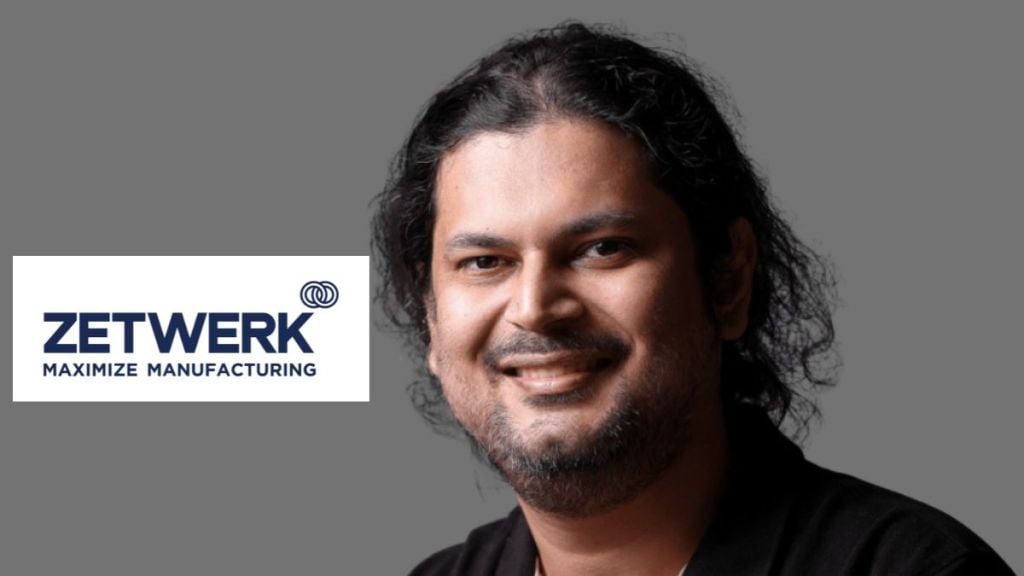Amrit Acharya, 37, co-founder and CEO of Zetwerk, was far removed from the world of engineering, let alone entrepreneurship, for most of his life. His father, an insurance employee and his mother, an NGO worker, both Arts majors, wanted him to become a doctor or an IAS (Indian Administrative Service) officer. Growing up in Bhubaneswar, which didn’t have top coaching centres back then, engineering or IIT was not even part of school conversations.
But destiny had something else in store — Acharya managed to join IIT Madras in 2006. “My grandmother was very good at maths. She was also my first math tutor. So, maybe there was some genetics at play,” says Acharya with a smile.
It was during his IIT days that certain moments made him realise he had an entrepreneurial streak in him. Like, in his second year, he won a competition held by Bosch, called Junkyard Wars, where participants had to build a vehicle from scrap. This fetched him an internship at Bosch.
His first assignment at ITC where he joined after graduation was to build a factory. “I was 21 then, so it was not my first choice, a software job was. But ITC gave him a steep learning curve. “I used to converse with both the CEO of the organisation and the factory workers. I had to develop the skill set to interact with a wide range of people. In a way, that was like my first stint in leadership.”
After ITC, he completed his MBA at UC Berkley and joined McKinsey in the US in 2015, which was the time when India was seeing the rise of first-generation entrepreneurs. “Some of my friends and peers turned startup founders. Like, one of my friends’ companies, BlackBuck, went public.”
Acharya decided to come back to India in 2018, though he didn’t have a solid idea about what to do. “In ITC, I was managing hundreds of suppliers, but it was strenuous as I did not have any specific tools to manage that. Everything was managed on Excel sheets.So, I decided to solve the problem,” he recalls. When large companies were operating like this, smaller companies must be even worse off, he thought. This helped Acharya narrow down on the perfect business model – a SaaS platform for executives in large companies to help them seamlessly manage interactions with 100-200 suppliers every day. His friend Srinath Ramakkrushnan agreed to join him as a co-founder.
Zetwerk was born in February 2018. Within six months, the Bengaluru-based startup also raised its seed round
of $1.5 million from PeakXV Partners and Kae Capital. Zetwerk has since then raised a total of $768 million across 16 funding rounds, with the latest being a Series F round on December 12, 2024.
Around the same time, Vishal Chaudhary and Rahul Sharma joined them as co-founders, followed by Ankit Fatehpuria. All of them rented an apartment complex and converted it into an office space in HSR layout, Bengaluru. It was a very small space.
But the biggest challenge was not the space; it was something they didn’t expect. The product didn’t have a market fit. While they had launched the software based on the feedback from senior executives at companies like GE, L&T and ITC, it only looked good on paper. Nobody was willing to buy it, though there was a genuine need for it.
Delving deep into the issue, they found that the executives at large companies were instead looking for a platform that could help them find new suppliers. That led the duo to pivot to a marketplace model where they could connect vendors with procurement officers at large companies. “Investors were used to seeing companies pivot, but not so early on. Surprisingly, they were happy that we wanted to act fast and pivot according to market needs.”
Since then, there has been no looking back for Zetwerk. The startup started growing 100% month-on-month, which was good evidence that there was a product-market fit. For FY20, Zetwerk posted a revenue of 331 crore, a significant increase from16.45 crore in FY19. And, for the first two-three years after the pivot in 2019, Zetwerk continued as a pure marketplace business in a single category, i.e., metal fabrication. It has since moved far ahead.
“Today, our business is a blend of doing some things on our own and doing a lot of things with partners. That is a natural evolution of business. And, in five years from now, there will be more evolutions. But the biggest turning point so far is still that early pivot.”
Zetwerk is now a contract manufacturing unicorn and segment leader, with a valuation of $3.1 billion. In FY24, the firm reported an operating revenue of 14,436 crore and saw a 35% increase in its gross merchandise value to17,564 crore in FY24.
The startup is eyeing an IPO by 2026 to raise $400-500 million, targeting a $5 billion valuation. Zetwerk is also working towards scaling up in-house manufacturing, global expansion, and has increased its focus on sectors like renewables and aerospace.


